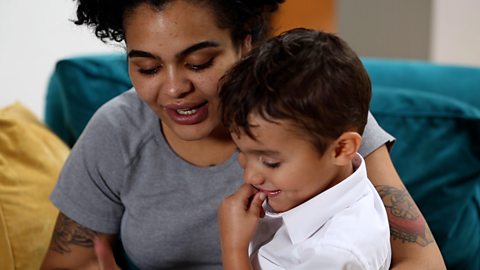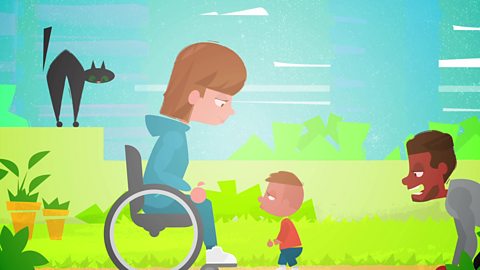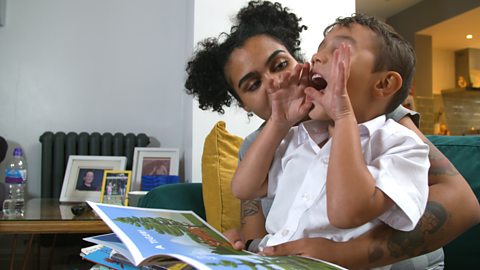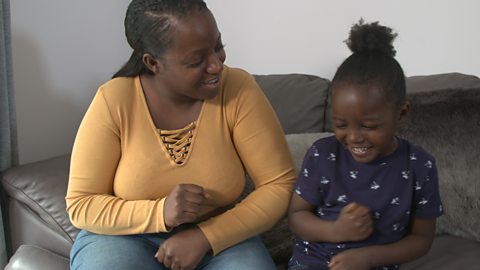As your child approaches the start of primary school, it is a good idea to play games that help with their understandings of word sounds.
Great ideas for these include exploring rhymes and words that sound the same and different or playing I-Spy, so they can think about the different sounds that start words for the things around them.
Check out the video below for more information.
Children are learning more words everyday. TheyŌĆÖre understanding rhyming words, recognising the same sounds in words. All brilliant tools for talking.
ItŌĆÖs great to play games like i-spy to get them thinking and talking about words beginning with a certain sound.
And reading a book together is a perfect time to explore words and sounds too.
Recognising sounds in words is called phonological awareness and it's key for your childŌĆÖs development .
So keep playing those rhyming, sound games and reading together to explore words, expand their language and help their early communication skills.
What are phonics?
When your children are approaching nursery or school age your childŌĆÖs setting may introduce ŌĆśphonicsŌĆÖ.
Phonics is a way of teaching children how to read by matching sounds to letters. Sometimes there are a few letters to represent the same sound eg a ŌĆśkŌĆÖ sound might be spelt with a c (attic), k (bark), ck (back).
Phonics just means matching the sounds that make up different spoken words to individual or groups of letters.
The more your child is exposed to words, the easier it is to match them to written words when they are introduced to phonics.

What does phonological awareness mean?
Phonological awareness is an understanding of the different sounds that make up spoken words in a language. It is the ability to recognise when these sounds are the same and when they're different.
It also involves skills like recognising how many beats (syllables) are in words, recognising that some sounds rhyme and that some sounds are similar.
As children get older and they start to become more confident talkers, they'll start to recognise things like rhymes - a sign that they are aware of what sounds make up words.
This is a big step towards being able to read, as they learn which letters on the page create those sounds when they're read out loud.
Phonics games for pre-schoolers
There are lots of activities you can do together to help build your child's phonological awareness.
I Spy is a classic activity to get children thinking about the different sounds that start words. Try saying 'I spy with my little eye something beginning withŌĆ”' and then the letter sound rather than the letter name, so 'buh' instead of B - this way they will think about the sound they make as they say the word.
Sound treasure hunts are a great variation on I Spy that are a little more active.
Sound sorting box games are another fun way to explore phonics - piece together a bunch of everyday objects in a box and get your child to help sort them by which sounds they start with
Besides the sounds starting words, rhyming games can help children think about other word sounds.

Find out more about phonics around our site
Early years practitioner Jamel Campbell explains what phonological awareness is and shares his top tips to support it.
See the science of word sounds and rhyming in action in our Speech Lab.
│╔╚╦┐ņ╩ų Bitesize has loads of great videos to help parents and children get to grips with phonics.






